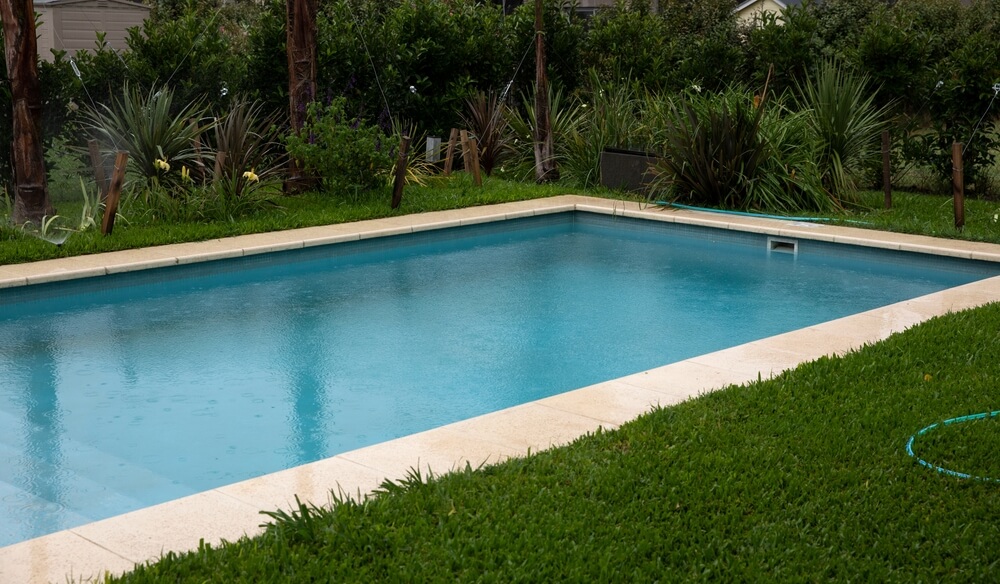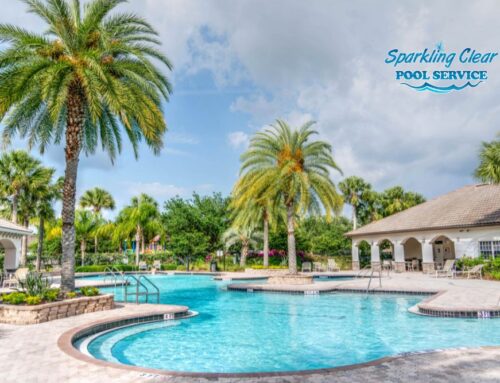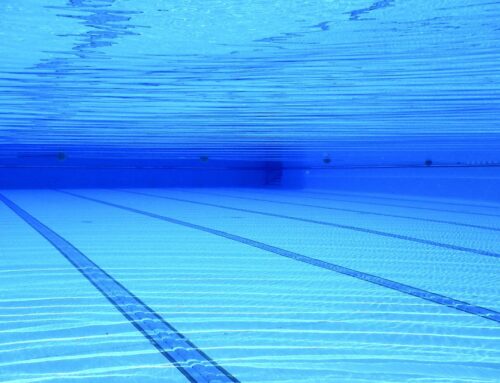Rainwater isn’t just water. As rain falls, it can pick up airborne contaminants and chemicals that may hurt the water in your pool. You work hard to keep your pool’s chemicals in balance. It only takes a small amount of rain to throw off that delicate balance and make your pool unsuitable for you to swim in. If it has rained recently, make sure to test your pool’s pH levels before you get ready to dive in.
Chemical Balance
The more rain you receive, the more diluted your chemicals will be. It will have different effects on each type of chemical. Understanding what each chemical does and how rain affects pool water is important. Maintaining the right balance is important if you want your pool to be safe for you and your family.
Pool Water pH
Rain that falls in the US is overly acidic due to all the pollution in the air. While you may think that rain would lower your pool’s acidity because it dilutes the water. Due to the acidity of the rain, the opposite may be true. When pool water is too acidic, it can irritate your eyes, skin, and nasal membranes. Check your pool often and adjust your chemicals accordingly.
Total Alkalinity
The acid/alkaline balance in your pool helps control algae and bacteria growth. If you get too much rain and the water’s alkalinity is reduced or eliminated, it can cause your pool to turn green with algae. It can also lead to corrosion that could damage your pool.
Calcium Hardness and TDS
The calcium hardness and TDS (total dissolved solids) will not be adversely affected by how acidic the rainwater is. On the other hand, heavy rains that will wash dirt and debris into your pool can affect the chemical balance of your pool’s water. This can disrupt the total alkalinity and your pool’s delicate pH balance. Always check your pool water, even if you only have light rain.
Also Read: How to Increase the pH Levels in Your Pool?
Pollutes Your Pool
Rains that force runoff into your pool from your lawn or deck can pollute your pool water. Fertilizers contain several chemicals and elements that trees and plants need to thrive. Those same chemicals and elements can pollute your pool to the point that it is not safe to swim in unless you closely monitor your chemical balance and make any necessary adjustments.
Causes Your Pool to Overflow
Heavy rains may cause your pool to overflow. Back-washing your pool before a big storm will allow it to take on more water than usual to prevent it from overflowing. Too much rain may wash dirt and debris from your lawn into your pool, blocking the drains and filters and polluting the water.
Enjoy your Pool Time with Sparkling Clear Pools
If you have questions about how rain affects your pool’s delicate chemical balance, contact the professional techs at Sparkling Clear Pool Service. We can show you how to keep your pool in balance at all times and prevent rain from causing any damage to your pool. We can help you with everything you need to know about caring for your pool.






